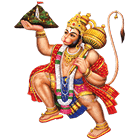Introduction:
Ram Navami is a sacred festival of Hinduism, celebrated on the ninth day of the Shukla Paksha (bright fortnight) of the Chaitra month. This day is observed as the birthday of Lord Shri Ram, who is worshipped as the seventh incarnation of Lord Vishnu. He is called "Maryada Purushottam" because his life reflects dharma (righteousness), truth, and ideals.
Mythology:
According to the Ramayana, King Dasharatha of Ayodhya was childless. On the advice of Sage Vashishtha, he performed a Putreshti Yajna (ritual for sons). As a result, he had four sons – Ram, Lakshman, Bharat, and Shatrughna. Lord Vishnu incarnated as Shri Ram to vanquish Ravana. On the ninth day of Chaitra Shukla, in the Punarvasu Nakshatra and Cancer zodiac, Mother Kausalya gave birth to Shri Ram.
Why We Celebrate Ram Navami:
Ram Navami is not just a celebration of Lord Ram's birth but also a nurturing of values like righteousness, humility, and compassion. Lord Ram's life teaches us that even in difficult situations, one should not deviate from the path of dharma and truth.
Main Traditions:
Fasting and Worship: Devotees observe fasts and, after bathing in the morning, perform Aarti and worship Lord Ram with devotion.
Recitation and Storytelling: In homes and temples, recitations of Ramayana, Sunderkand, and Ramcharitmanas are performed.
Tableaux and Processions: In many cities, processions are also organized with tableaux of Ram, Sita, Lakshman, and Hanumanji.
Special Events in Ayodhya: At Lord Ram's birthplace, Ayodhya, special pujas, holy dips in the Saryu River, and grand religious programs are organized.
Significance of Ram Navami:
Ram Navami symbolizes truth, duty, and Maryada (respect for boundaries/ethics). This festival inspires us to follow dharma in life, practice self-control, and live with devotion. Lord Ram's life is like a guiding light for us – teaching everyone to walk on the true path of life.








